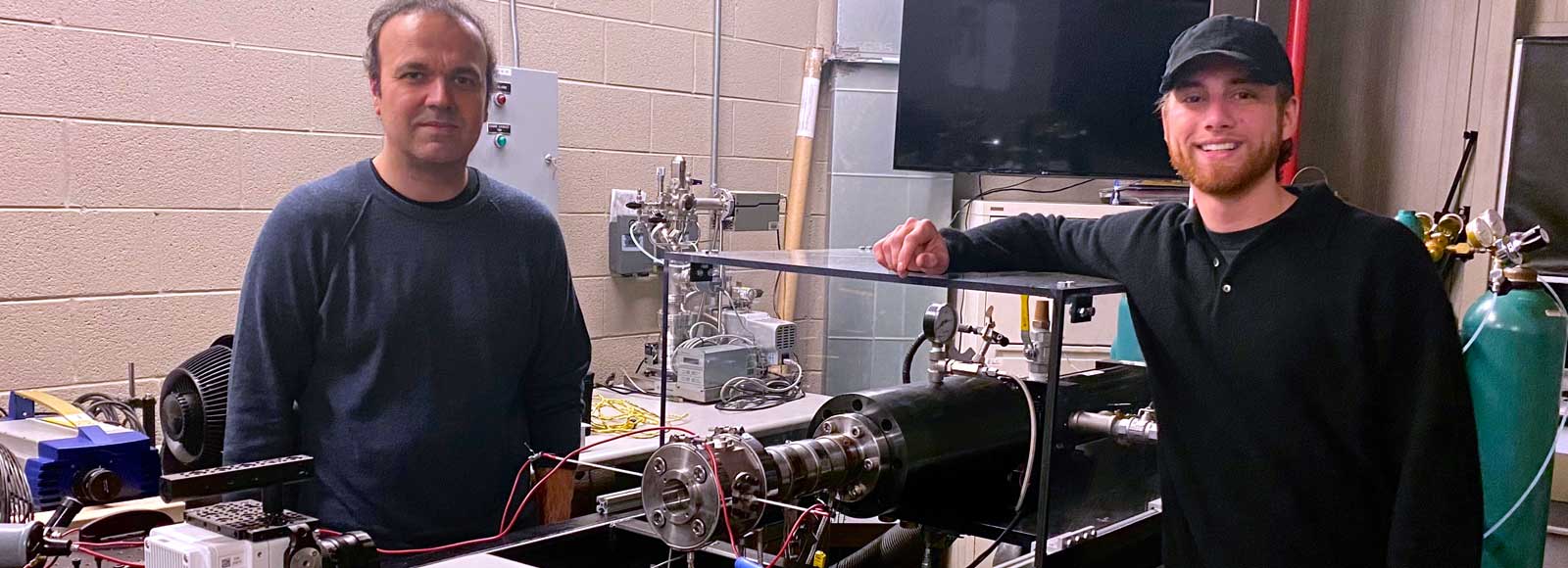Wayne State mechanical engineering senior Jacob Klein invited to present award-winning combustion research at national meeting

The Central States Section of The Combustion Institute (CSSCI) invited Jacob Klein, a fourth-year mechanical engineering student at Wayne State University, to attend and present his work at the 13th U.S. National Combustion Meeting, co-hosted by the CSSCI and Texas A&M University, March 19-22 in College Station, Texas. Klein was one of three winners selected from entries in an undergraduate research competition.
Hosted biennially since 1999 by the joint U.S. sections (Central, Western and Eastern States) of The Combustion Institute, an international non-profit society that promotes research activities in combustion science and technology, the meeting drew more than 400 students, scientists and engineers from across the country to share the latest innovations in this field.
Klein has been working in the Combustion Physics Laboratory under the direction of Omid Samimi, assistant professor of mechanical engineering at Wayne State, since the fall of 2021 when Klein asked to tack on a project to the ME 2200 Thermodynamics course that would earn him honors credits. For several weeks, Klein absorbed a wealth of information from Samimi and his graduate students.
“This was the first time I had access to a true research setting,” said Klein. “Seeing the laboratory and experiments firsthand demonstrated practical applications of the course content I was learning, which is an invaluable opportunity as a student.”
The experience inspired Klein to remain with the lab and pursue his own work. He started with exploring different methods of measuring species concentrations and gas temperatures during combustion — first alongside a graduate student, and eventually with more independence. His research was awarded by the CSSCI, which presented an opportunity to exhibit his findings on a regional stage, and helped him land an internship with DEVCOM.
“The focus of my work there was compression ignition engines for unmanned aerial vehicles and validating concepts to enable the Army’s single fuel forward policy,” he said, referencing the U.S. Army’s efforts to make its equipment and fleet all compatible with the same type of fuel in hopes of easing logistics while deployed.
His current project, which earned him the invitation to the national meeting, aims to further the comprehension of how laminar flame speed and autoignition simultaneously affect the combustion process. Using gas mixtures composed of hydrocarbon fuel surrogates, Klein captures propagation — the spread of the flame from the origin of combustion — with high speed cameras, and processes images into useful data with developed code.
“Due to the complexity and number of components, simulating the ignition kinetics of fuel mixtures poses a challenge. To overcome this, experiments are conducted with surrogate fuels that can reproduce the overall ignition behavior of actual fuels, while containing only a limited number of components,” said Klein. “If we have experimental data that demonstrates how a fuel behaves at the conditions in which autoignition and flame propagation concurrently affect the combustion process, it can inform computational fluid dynamics modeling through kinetic mechanism validation.”
Already pursuing an M.S. through Wayne State’s AGRADE program, Klein will leverage his research to develop his master’s thesis. He also plans to return to DEVCOM this summer to work in the Ground Vehicle Systems Center.